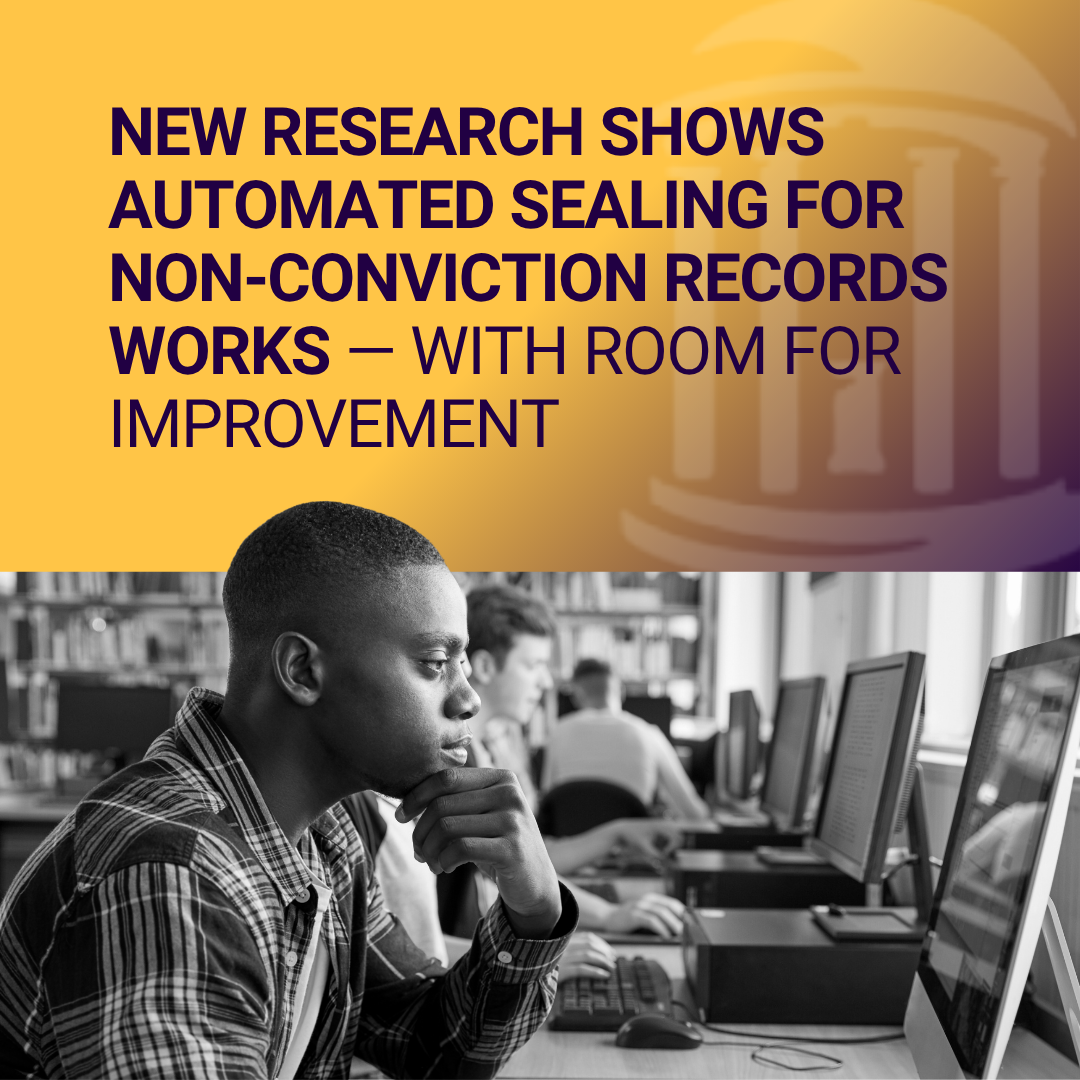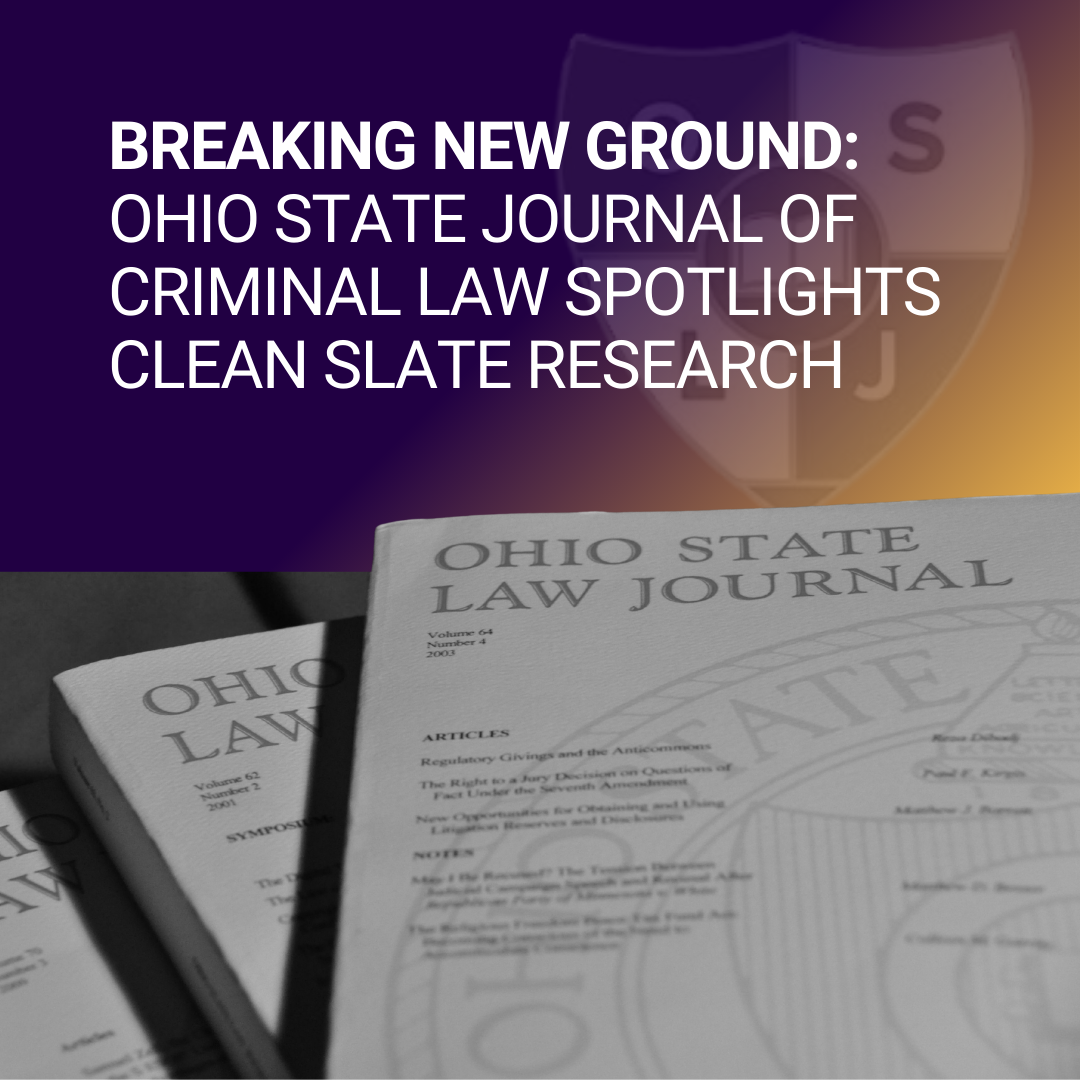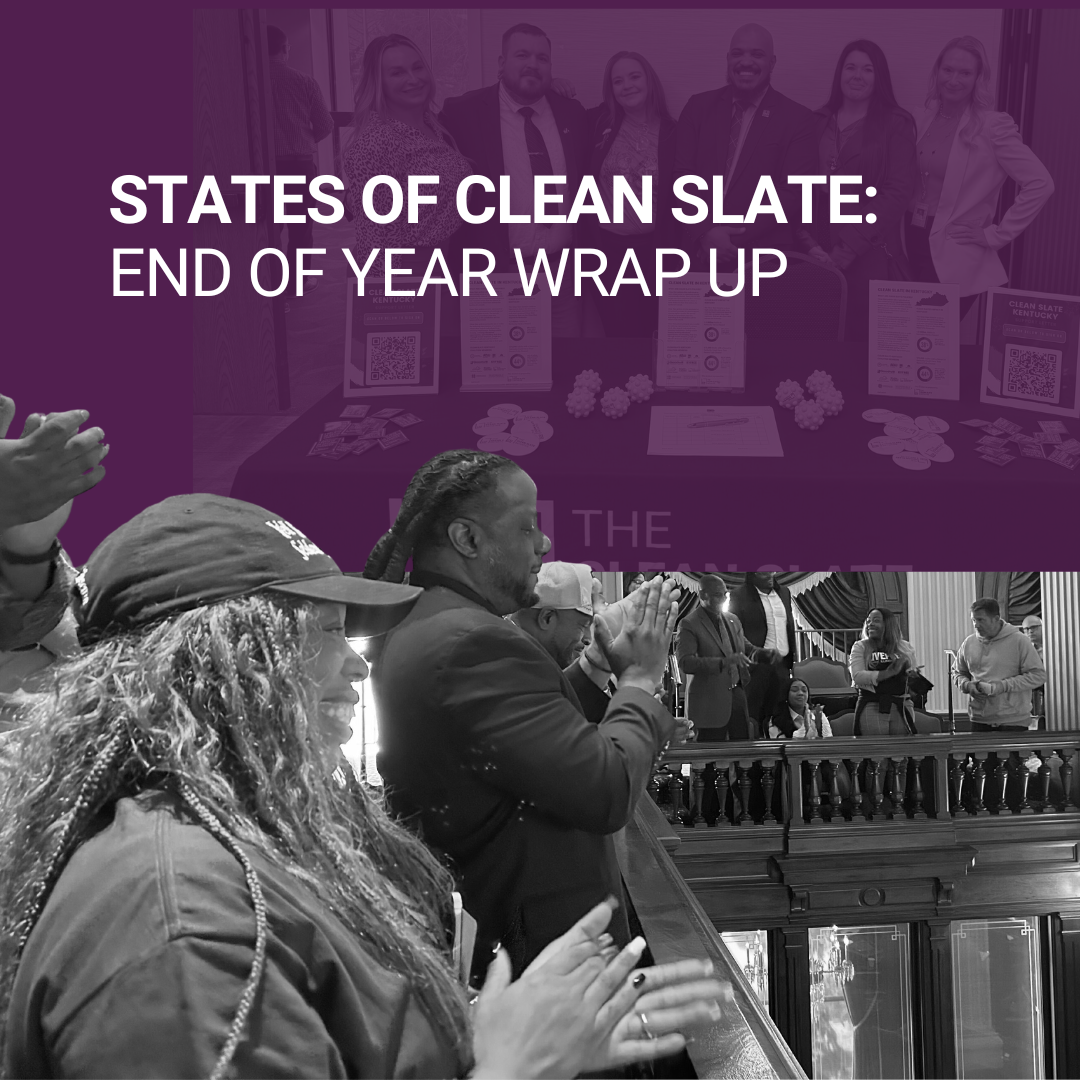Bridging the Research Gap: Advancing Clean Slate Policies through Research

In the world of legal system reform, there is often a gap between academic research and its real-life implications, which are wide and complex. At The Clean Slate Initiative, we are committed to bridging this gap. Our goal is to champion studies that immediately inform policy decisions that will deliver positive impacts to the people who are held back by their records every day.
We are invested in building the evidence base around our policy.
We know that arrest and conviction records present numerous barriers that hold people back from realizing their full potential in areas like employment, housing, and education. But we need to know more about the real-world impacts of Clean Slate policies. How does automatic record clearing impact employment, housing, public safety, and other critical areas of daily life? How do those impacts vary by race, ethnicity, sex, age, and other demographic factors? And how do different Clean Slate policy configurations influence outcomes?
We aim to answer some of these important questions by funding comprehensive research via our next Research RFP.
Our Research RFP will fund research in three essential categories:
- Assessing the impacts of Clean Slate legislation: We want to fund rigorous research that dives into understanding the multifaceted impacts of Clean Slate laws. How do they influence individual, family, and community outcomes across different states? Are there other factors that might influence the relationship between Clean Slate record clearing and important outcomes?
- Awareness and notification of Clean Slate policies: We want to understand how awareness (or the lack thereof) of Clean Slate policies affects the individuals directly impacted. What are the most effective ways to notify individuals about the benefits of Clean Slate? How does awareness of Clean Slate shape outcomes?
- Clean Slate implementation fidelity: Ensuring the effective implementation of Clean Slate laws is crucial. We’re interested in how accurately and efficiently records are cleared and updated across government and third-party (e.g., background check companies) databases and how this process may differ between states.
We are committed to funding rigorous and impactful research that centers people directly impacted by the legal system.
Well-designed, causal research is important for organizations like ours because the insights gleaned can be immediately implemented to create tangible changes. It’s about having a pulse on what policy improvements are needed and enabling us to adapt quickly.
We believe that those most impacted by the legal system should be central in deciding and implementing remedies that can improve their lives. The same goes for our research philosophy. We will prioritize researchers who are themselves directly impacted or who present a research proposal that meaningfully engages directly impacted leaders in the project's design and execution.
We will also prioritize projects with clear paths to practical application. This means supporting studies that offer immediate insights into policy reforms and community support for individuals with records, their families, and communities.
The impact of the research we fund extends beyond papers and presentations. It influences our policy decisions and, most importantly, changes lives. By funding rigorous research that keeps those impacted at the center of decision-making, we help shape a more equitable and just system for individuals who have been burdened by their past.
.avif)
.avif)




.png)